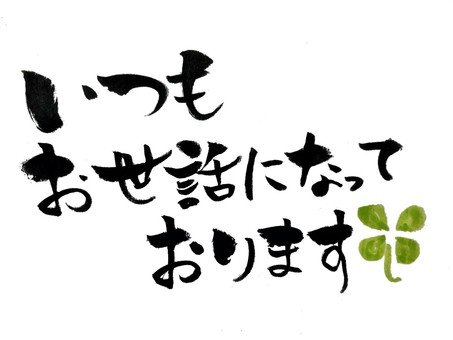O-Sewa…
Hai! Moshi-moshi. Kawasaki Seitetsu Nyū Yōku jimusho no Kento de gozaimasu. Itsumo o-sewa ni natte orimasu.
“Hello. It’s Kent of Kawasaki Steel, New York Office. Thank you for all your help.”
It’s around 1990 and I’m working for Kawasaki Steel America in a glass office tower on East 52nd Street off Park Avenue. I’d been hired as a “bilingual manager” in 1989, the tail end of Japan’s boom times. Kawasaki Steel was a major player in Japanese heavy industry. While Nippon Steel, NKK Steel, Kobe Steel, Sumitomo Metals, and the others had already formed joint ventures with American steelmakers, Kawasaki Steel (Kawatetsu; 川鉄) was late to the party. The only U.S. steelmaker that was willing to dance with Kawatetsu was the venerable and somewhat rusted-out Armco Steel. The CEO of Kawatetsu got excited when he learned that Armco was looking for a Japanese partner. Gijutsu no Aamuko! (“Armco technology!”): The Japanese steel industry had learned much from Armco in the 1950s and ‘60s, especially in the area of steel rolling technology, technologies that Armco had pioneered early in the 20th century.
There was little glory in my job. I was, in fact, hired as a bilingual bag carrier (kaban mochi). The company needed me to make travel arrangements for visiting Japanese personnel, to meet them at the airport, to go with them to their various destinations, and to interpret for them as needed. I had no authority and had no one to manage. The job was often boring and pointless, especially as I sat in the office awaiting the next assignment. I learned the old line “They also serve who only stand and wait.” All too often, I would watch the clock as it made its agonizingly slow progress toward 5:00. I’d be out the door, leaving my Japanese colleagues behind as they also killed time until eight or nine in the evening. Not that they were doing anything essential: One simply does not leave the office until it is absolutely necessary to go home. It’s a cultural thing.
But today’s cultural curiosity is the concept of o-sewa (お世話). It is a truism of cultures other than your own that it is the expressions which least lend themselves to translation that offer the deepest insight into the other culture. O-sewa is one such expression. I translated it above as “Thank you for all your help,” but that hardly explains the expression.
“Sewa,” prefixed with the honorific “o” in recognition of the superior status of the person to whom one is speaking, essentially means “care,” as in the care that one person shows for another. The expression “Itsumo o-sewa ni natte orimasu” can more accurately be rendered as “You always show care for me/us.” It carries some of the sense of “thank you for your patronage,” but expression is not limited to an actual transaction. Seen in its best light, Japanese society is an intricate web of connectedness between individuals. Each individual is in turn defined by the organizations to which they belong. In this way, the expression communicates the notion that you and I and everyone else are connected, be it through business dealings, friendship, a service relationship, a teacher/student relationship, etc. And now you are doing something for me that I value. In the New York office of Kawasaki Steel, that valuable thing might have been the purchase of 100,000 tons of cold rolled steel, the provision of competitive information, or helping to coordinate a golfing party (which seemed to be a primary responsibility of the New York office). Or, just as likely, it was simply a polite thing to say, a formulaic expression with no particular meaning at all.
Nevertheless, the notion of “sewa” has deep roots in the Japanese language. It turns up in sentences like this:
Dōryō no Amerika ni iru musuko no sewa wo suru yakusoku o shimashita.
同僚のアメリカにいる息子の世話をする約束をしました。
(I promised to take care of a colleague’s son in the U.S.)
Or this inversion of o-sewa’s polite meaning:
Yokei na o-sewa! 余計なお世話!
(Mind your own business! {literally: “That’s too much care-giving})
Or sewa-yaki (世話焼き – literally “care burning”), as in:
Sewa-yaki baasan. 世話焼きばあさん。
(Meddlesome old woman. <ouch!>)
O-sewa is something that can happen
In the past: O-sewa ni narimashita
The present continuative: O-sewa ni natte orimasu
Or the in the future: O-sewa ni narimasu
This last version might be used when you call someone to ask a favor (making a reservation, asking for advice, making a sale), meaning: I’m going to be asking for your care.
All this care-giving and care-receiving is connected to another famously untranslatable expression: Yoroshiku onegai shimasu (よろしくお願いします), literally meaning “I request your goodness” or “please be good to me.” You can hear Japanese people using this expression many times each day.
One of my favorite settings for this stock expression is when a parent takes their child to kindergarten for the first day of school, bowing low and entreating the teacher with a heartfelt yoroshiku onegai shimasu. The expression carries the weight of emotion a parent feels in entrusting their beloved (and potentially troublesome) child with a teacher for the first time. Wrapped up in this expression is all of a parent’s love and concern for their child and the hope that the child will be cared for and kept safe by the teacher and the school. When I brought my children to school for their first day, I dearly wished that I had available to me a similar expression in English. In my native language, the hapless parent experiencing separation anxiety is left at a loss for words:
“Bye, Billy!” (And, awkwardly, to the teacher:) “Thanks!”
…which leaves so much unsaid.

